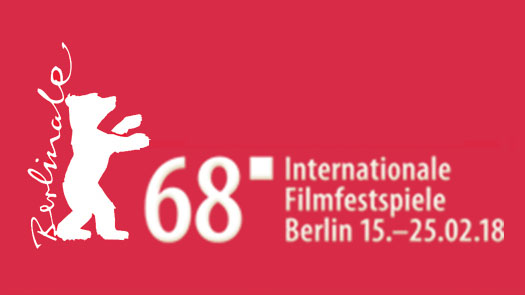Eldorado press conference with Markus Imhoof, Thomas Kufus, Raffaele Falcone and Aket Téwendé
Eldorado is a powerful documentary that details the stages refugees experience upon arriving in Europe. Director, Markus Imhoof connects this crisis to his childhood, when his family took in a Jewish refugee during World War II as his adopted sister. The director as well as producer Thomas Kufus were joined by humanitarian Raffaele Falcone and migrant spokesperson Akhet Téwendé to discuss the crisis and the urgent need for a human response.
How did you go about producing this expansive film and what was the message you wished to convey to Europe and the world?
Markus Imhoof: This film talks from the perspective of the white people about how this machine is built. How people have to overcome obstacles time and again. It’s always the same: those who are happy administer and control the others. From the point of view of the happy ones, our day-to-day life has everything to do with the refugees. This is the message of my film. When we eat spaghetti, we support slavery.
Thomas Kufus: We’re facing one particular challenge in connection with this film. We started filming with Markus four years ago and during the filming the refugee movements really spilled all over Europe from the south. There were so many refugees coming into Europe, therefore we had to make adjustments to the original concept. All of a sudden new aspects had to be factored in because they had assumed more significance. So, time and again, we had to adjust our concept to the changing subject, we had to react immediately.
From a certain time onwards, we were not allowed to react any stronger anymore. We decided to stick, more or less, to the original concept as it was initially developed because we wanted to convey a certain message and we hope that the message remains significant for a couple of years to come. We deliberately made this film out of the angle of the European authorities that are completely overwhelmed, in Italy and Switzerland, because we underestimated the situation. All of the people working are overburdened and overtaxed and this is written in between the lines in the film.
What were some of the difficulties you encountered along the way?
MI: It was also very difficult to open up the doors in the public institutions because they get paid by us yet they don’t want us to see what they’re doing. Either they’re afraid of being too nice or too harsh. A well paid civil servant in Switzerland told me that if the people on the right and the left are both equally dissatisfied with what we’re doing, we did a good job. Lacking this creativity in one’s life is really devastating I find.
I didn’t want to make a horror movie about evil people. The system is evil, the problem is that every single person has only one limited sphere of their limited ability and passes onto somebody else, so no one takes responsibility for people’s lives.
What were some of the painful answers you ended up with?
Raffaele Falcone: We wanted to take on the responsibility for them. I think the young people of Italy, my generation in 30 or 40 years from now, will have to ask themselves the question: which side was I on back then? History repeats itself again and again. In the future, I will have to explain to my children and my grandchildren that I was on this side, the right side.
We conveyed a very clear message. Those newcomers who have a job have to be able to execute their job. They need to have regular pay and regular hours but this does not exist. There’s nothing revolutionary here. People are simply saying we have to abide by laws and regulation. Of course, the multi-nationals are to blame and we always try to point the finger at the powers that be but we don’t really know who they are. Also, the employers are to blame, those who hire these people. They’re also to be blamed.
Akhet Téwendé: I do not – and I said so in the ghetto in 2015 – I do not believe that the multi-nationals or employers are guilty but everyone is responsible. What are we doing to stop this? It’s easy to blame the powers that be but everyone shares a bit of responsibility and I think this individual responsibility is linked to education in Africa and Europe. What we need is education. Everybody has to have access to education. To help the people to stay in their countries in order to feel welcome elsewhere. Please give me what I need in my country and I will not come to your country. That’s what it’s about. It’s not about blaming and shaming. It’s about allowing people to stay in their country, in freedom, and then they will not seek happiness somewhere else.
Sean Gallen
Eldorado does not have a UK release date yet. Read our review here.
Read more reviews from our Berlin Film Festival 2018 coverage here.
For further information about the event visit the Berlin Film Festival website here.

























Facebook
Twitter
Instagram
YouTube
RSS